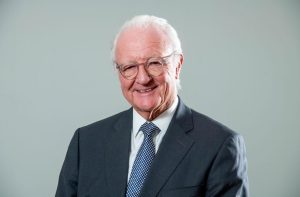Spencer Group delivers first part of £150m Humber Ports biomass investment

SPECIALIST engineering business Spencer Group has delivered the first project as part of a £150m investment in biomass handling operations at the Humber Ports.
The Hull-based company has designed and constructed a facility at the Port of Hull – the first to be completed to support a 15-year contract between port operator Associated British Ports (ABP) and Drax Power to enable sustainable biomass to be transported to Drax Power Station at Selby, as part of an ambitious programme which will see Drax transform into a predominantly biomass-fuelled generator within a few years.
Work began in April last year, with Spencer constructing biomass handling, storage and discharge facilities, as well as associated infrastructure.
The facility will handle 1m tonnes a year of biomass imported by sea from the United States and Canada in the form of wood pellets created from sustainable forestry residues and thinnings. The biomass is stored in warehouses before being delivered by truck to the new facility and unloaded into feeders which take it to a 250-metre (820 ft) conveyor, carrying it to the top of the silo.
Spencer Group chief operating officer, Gary Thornton, said: “The Humber Ports are becoming a major gateway for biomass shipments into the UK and a strategic asset driving the growth of green energy industries along the estuary. The facility we have constructed at the Port of Hull is both a showcase for our engineering capability and a beacon for the Humber’s growing reputation as the UK’s renewables region.”
Philip Hudson, Drax director of corporate affairs, added: “With its headquarters in Hull, Spencer Group was geographically well placed to take on the project, supported by a trusted and reliable local supply chain. Spencer also offered design and build expertise and the ability to mobilise and deliver the project rapidly to meet the requirements of Drax and ABP. The facility at the Port of Hull is an impressive feat of engineering, addressing successfully a number of operational challenges.”







